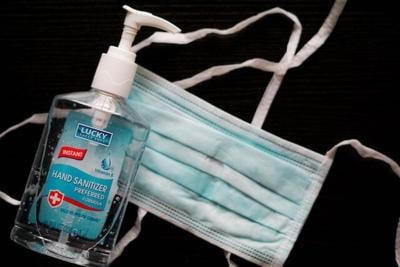
Face masks and respirators play a crucial role in protecting individuals from various airborne particles, pollutants, and infectious diseases. These protective devices have become especially important during the ongoing COVID-19 pandemic.
This article will discuss the purpose and significance of face masks and respirators, highlighting their effectiveness and how they contribute to public health.
Preventing the Spread of Infectious Diseases
The primary purpose of face masks and respirators is to prevent the spread of infectious diseases, such as the highly contagious COVID-19. When an infected person coughs, sneezes, talks, or even breathes, respiratory droplets containing viruses or bacteria are released into the air. These tiny droplets can travel through the air and enter the respiratory system of others who come into close proximity.
By wearing a face mask or respirator, these respiratory droplets are intercepted and blocked, reducing the risk of transmission to others.
Protecting Others
Wearing a face mask or a respirator is an act of compassion and consideration for the well-being of those around us. Wearing these protective devices is not solely for personal protection but also to protect others from potential infection. Asymptomatic individuals, who may unknowingly carry the virus, can still spread it through respiratory droplets.
Wearing a mask or a respirator helps individuals prevent the unintentional spread of the disease to vulnerable populations, such as the elderly or immunocompromised individuals, who are at higher risk of severe illness or complications.
Reducing Community Transmission
The collective use of face masks and respirators within a community is a powerful tool in reducing the overall transmission of infectious diseases. When a significant portion of the population consistently wears masks, the risk of virus spread is significantly decreased. This is particularly crucial in situations where social distancing may be challenging, such as in crowded public spaces, public transportation, or workplaces.
Implementing mask-wearing practices on a community level disrupts the transmission chain, leading to a decline in the number of new cases and ultimately protecting the entire community.
Personal Protection
While face masks primarily serve to protect others, they also offer some level of personal protection. Masks can act as a barrier against larger respiratory droplets containing infectious particles.
Although not as effective as respirators, masks can filter out some droplets, reducing the risk of inhaling harmful particles. It is important to note that the level of protection varies depending on the type of mask used and the fit of the mask on the individual's face.
Respiratory Droplet Containment
Face masks and respirators effectively cover the nose and mouth, serving as a physical barrier that contains respiratory droplets. When a person wears a mask and engages in activities such as talking, coughing, sneezing, or breathing, the mask acts as a filter that captures and holds the droplets within its material.
This containment minimizes the dispersion of potentially infectious particles into the surrounding air, making it less likely for others to come into contact with these droplets and reducing the risk of transmission.
Compliance with Public Health Guidelines
Wearing face masks and respirators aligns with public health guidelines and recommendations aimed at reducing the spread of diseases. These guidelines are based on scientific evidence and expert advice and provide a roadmap for individuals and communities to follow to mitigate the impact of infectious diseases.
By complying with these guidelines, including the use of face masks and respirators, individuals demonstrate their commitment to the well-being of their community and contribute to the collective effort in combating the spread of infectious diseases.
Mitigating the Risk in High-Risk Environments
Face masks and respirators are particularly crucial in high-risk environments, such as healthcare settings or crowded public places, where close contact with infected individuals is more likely. Healthcare workers and other frontline personnel, who come into direct contact with patients or handle potentially contaminated surfaces, face a higher risk of exposure to infectious particles.
Wearing respiratory protection, such as N95 respirators or an air-purifying respirator mask, provides an additional layer of defense, minimizing the risk of inhaling airborne particles and protecting these individuals from infection.
Similarly, in crowded public places, where social distancing may be challenging, the use of face masks can help mitigate the risk of transmission among individuals who may unknowingly be carrying the virus.
Ensuring Proper Usage
To maximize the effectiveness of face masks and respirators, it is crucial to use them correctly. Here are some key points to remember:
Fit: Ensure that the mask or respirator fits snugly against the face, covering both the nose and mouth. A proper fit minimizes the chances of airborne particles bypassing the protective barrier.
Seal: When using a respirator, it is important to achieve a tight seal to prevent contaminated air from leaking in. Follow the manufacturer's instructions for wearing and adjusting the respirator properly.
Maintenance: Dispose of disposable masks after each use, and clean reusable masks regularly according to the manufacturer's instructions. Proper maintenance helps maintain the effectiveness of the protective device.
Face Masks and Respirators: Everyone's Must-Haves
Face masks and respirators serve critical purposes in protecting individuals from airborne particles and infectious diseases. Face masks primarily prevent the transmission of respiratory droplets, safeguarding others, while respirators offer a higher level of filtration and protect the wearer from hazardous substances.
By understanding the purpose and significance of these protective devices, we can prioritize their usage and contribute to maintaining public health and safety.




(0) comments
We welcome your comments
Log In
Post a comment as Guest
Keep it Clean. Please avoid obscene, vulgar, lewd, racist or sexually-oriented language.
PLEASE TURN OFF YOUR CAPS LOCK.
Don't Threaten. Threats of harming another person will not be tolerated.
Be Truthful. Don't knowingly lie about anyone or anything.
Be Nice. No racism, sexism or any sort of -ism that is degrading to another person.
Be Proactive. Use the 'Report' link on each comment to let us know of abusive posts.
Share with Us. We'd love to hear eyewitness accounts, the history behind an article.